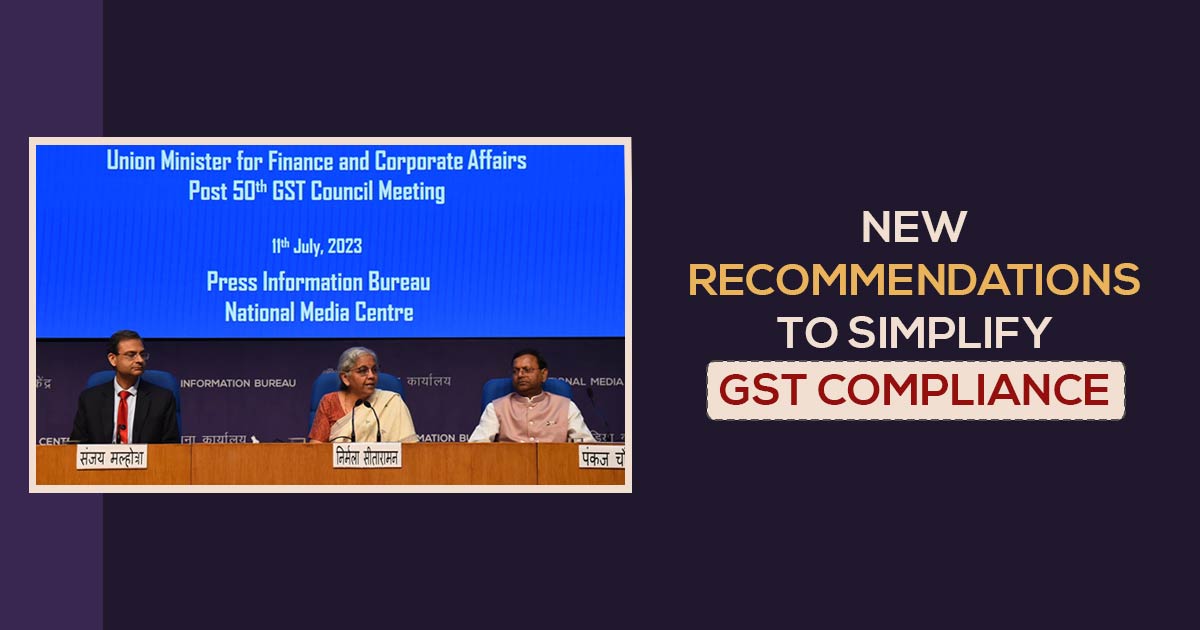
The 50th GST Council meeting chaired by Union Finance and Corporate Affairs Minister Smt. Nirmala Sitharaman suggested measures to streamline compliance with GST.
The Council has recommended inserting rule 138F in the CGST Rules, 2017, as well as in the SGST Rules, 2017, of the States that want to mandate the generation of e-way bills for intra-State movement of gold and precious stones under Chapter 71 within their States. This is in response to the recommendations of the Group of Ministers (GoM) on the implementation of the E-way bill requirement for the movement of gold and precious stones under Chapter 71.
The Council recommended the inclusion of Rule 142B to the CGST Rules, 2017 and adding Form GST DRC-01D to the rules to specify how to recover tax and interest on amounts reported under GST Rule 88C that have not been paid and for which the registered person has not provided a satisfactory justification.
The purpose of amending FORM GSTR-3A is to make it clear that failing to submit Annual Returns in FORM GSTR-9 or FORM GSTR-9A by the deadline would result in registered taxpayers receiving notice.
It is necessary to modify Rule 64 and FORM GSTR-5A of the CGST Rules, 2017 to compel OIDAR service providers to report the particulars of their deliveries to registered people in India in FORM GSTR-5A returns. This would make it easier to track when such registered persons in India have to pay tax on supplies they obtained from OIDAR service providers on a reverse charge basis.
The GST Council has suggested adding Rule 163 to the 2017 CGST Rules in order to outline the terms and circumstances of consent-based sharing of registered person information with other systems. The Council has also provided guidance concerning notifying “Account Aggregators” as the systems with which information is to be shared on the common portal under Section 158A of the CGST Act, 2017.
The Council has recommended adding a clause (ca) to sub-section (1) of Section 10 of the IGST Act, 2017 to make it clearer when products are supplied to unregistered individuals.
The GST Council has suggested setting up a state-level coordination committee made up of GST officers from the State and Central GST administrations in order to share expertise on GST-related issues and coordinate efforts for administrative and preventive actions.